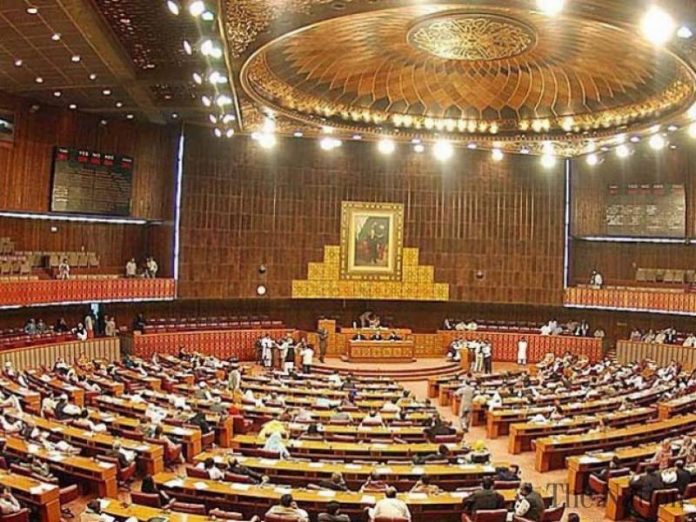ISLAMABAD: After the Senate committee on finance, the National Assembly’s panel on finance has also criticized the government for not increasing the price of cigarette in the country. During a meeting of the National Assembly’s Standing Committee on Finance, which was chaired by Qaiser Ahmed Sheikh, the committee also held the hearing by Pakistan National Hearth Association (PANAH). Moreover, association’s representatives criticised the government for not doing enough to raise the price of cigarettes in the country.
“It is unfortunate that recommendations were made by the committee and the state minister had assured to abolish the third tier on cigarettes – but it did not happen in the budget” PANAH Dr Wajid Ali said.
“I request you to understand the difference between revenue and public health at large,” he said adding, “But in this case, it is the adamant attitude of Federal Board of Revenue (FBR) since revenue collections have dropped due to the third tier and consumption has increased mainly among youngsters.” He said this while referring to a by the State Bank of Pakistan (SBP) that noted that revenue from the tobacco sector had declined after the introduction of the third tier.
Responding to the criticism, State Finance Minister Rana Afzal acknowledged that cigarettes prices should be increased. He said that the country was faced with a severe smuggling problem and the government had to find a solution that was viable. He went on and acknowledged that the government and its officials had no clue regarding the share of smuggled cigarettes within the country, while it was still figuring out sales in both organised and the unorganised sector.
During the meeting, industrial and commercial importers, and members of Karachi Chamber of Commerce and Industry (KCCI) also criticised FBR for allegedly complicating things leading distrust between the government and the business community.
“The most unfortunate part was that instead of understanding the problem, FBR chairman Tariq Pasha blamed the business community of money laundering and under-invoicing,” KCCI representative Ibrahim Kusumbi said while adding, “Yesterday they said that the decision making power was with the prime minister and not the finance minister.”
He questioned the chairman, “How can anybody be laundering money through imports? If anybody wants to bring money into the country, he would simply invest in any sector and there will not be a problem”.
He said that the average import tax on commercial importer was more than six per cent whereas the same on industrial imports was around 1.5 per cent.
“Usually industrialists import raw material and sell it to other small units at a higher cost – they make more money through this sale rather than through the sale of finished goods,” Kusumbi said.
Qaiser Ahmed Sheikh said that globally the commercial importers were the main suppliers of raw material at credit for small industrial units.
He suggested that the gap between industrials imports and commercial imports should be bridged by reducing taxes on commercial imports to 4 per cent while taxes on industrial imports should be increased to 3 per cent rather than letting the burden fall on commercial imports altogether.
Meanwhile, Rana Afzal assured the committee that they would look into the matter.
Earlier, Committee Member Rashid Godil asked whether a non-operational industry could still import raw material based on their documents, which left FBR officials mum.
He further questioned the FBR officials, “If an industry has the capacity to process 100 tonnes of raw material in order to produce plastic goods yet it imports 1000 tonnes per annum, then who is responsible for regulating the rest of the 900 tonnes and check where it has been used?”
While FBR officials failed to provide a proper response to the committee’s queries, they added that there must be auditors assigned to audit industries as well.




